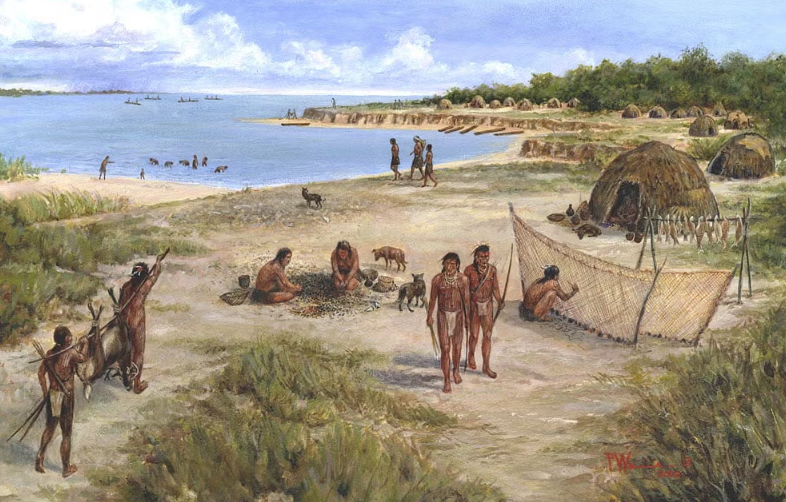
- Details
- By Native News Online Staff
Two South Texas tribes and a local environmental group are calling on the U.S. Army Corps of Engineers to revoke a federal permit for a proposed export terminal at Donnel Point, saying new environmental and cultural findings invalidate the original approval.
In a letter sent this week by attorneys with Earthjustice and the University of Texas Environmental Law Clinic, the Karankawa Tribe, the Carrizo/Comecrudo Tribe, and the Coastal Watch Association urged the Corps to revoke the 2016 permit, conduct new environmental and cultural reviews, and deny any future permit extensions. The groups also asked that the Karankawa and Carrizo/Comecrudo Tribes be recognized as formal parties in any future proceedings.
“This site was once a settlement of the Karankawa peoples. The Port should be open to culturally appropriate uses for this important coastal property — ones that respect both the land, the water, and the people connected to it,” said Love Sanchez, founder of Indigenous Peoples of the Coastal Bend.
The permit was originally issued to Cheniere Energy in 2016 for a crude-condensate export terminal. Although the Corps conducted environmental and cultural resource reviews at the time, it did not test for historical artifacts at Donnel Point. In 2021, the Port of Corpus Christi acquired the permit and site, and has since sought new developers for what it now describes as a potential “marine terminal.”
The groups say the Port effectively abandoned the original project, meaning any new proposal would require a new permit and updated review under federal law.
“Federal law requires a new review when there are major changes or significant new information — and that’s clearly the case here,” said Erin Gaines of the University of Texas School of Law Environmental Law Clinic, who represents the groups.
The letter cites new cultural and environmental findings since 2016, including archaeological evidence rediscovered in 2024 showing that Donnel Point was once a Native settlement. The Karankawa and Carrizo/Comecrudo Tribes are asking the Texas Historical Commission to designate the area as a historic property.
Environmental studies also point to seagrass depletion, nearly doubled tanker traffic, and increased flood risks due to sea-level rise and bulkhead failures.
“This site and its surroundings have changed so dramatically since 2016,” said Patrick Nye, president of the Coastal Watch Association. “Tanker traffic has doubled in the area and seagrass has been significantly impacted over that period. Adding another marine terminal could exacerbate those new issues.”
The permit is set to expire in December 2026, but the groups urged the Corps not to issue extensions, arguing that doing so would allow the Port to repurpose an outdated authorization for a new, undefined project.
The Army Corps of Engineers has not yet publicly responded to the request.
More Stories Like This
Gwich'in Tribal Governments Submit Comments Challenging Fish and Wildlife Service's Inadequate Environmental Review of Arctic Refuge Snow RoadRappahannock Tribe Challenges 9M-Gallon Water Plan
Feds release draft long-term plans for Colorado River management
Apache Leader Walks 60 Miles to Court Hearing That Will Decide Fate of Sacred Oak Flat
Rappahannock Tribe Raises Sovereignty and Environmental Concerns Over Caroline County Water Permit
Help us defend tribal sovereignty.
At Native News Online, our mission is rooted in telling the stories that strengthen sovereignty and uplift Indigenous voices — not just at year’s end, but every single day.
Because of your generosity last year, we were able to keep our reporters on the ground in tribal communities, at national gatherings and in the halls of Congress — covering the issues that matter most to Indian Country: sovereignty, culture, education, health and economic opportunity.
That support sustained us through a tough year in 2025. Now, as we look to the year ahead, we need your help right now to ensure warrior journalism remains strong — reporting that defends tribal sovereignty, amplifies Native truth, and holds power accountable.
 The stakes couldn't be higher. Your support keeps Native voices heard, Native stories told and Native sovereignty defended.
The stakes couldn't be higher. Your support keeps Native voices heard, Native stories told and Native sovereignty defended.
Stand with Warrior Journalism today.
Levi Rickert (Potawatomi), Editor & Publisher


